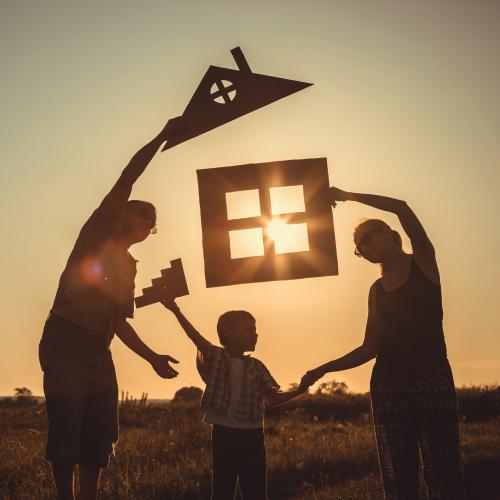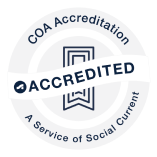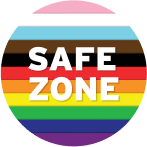The Community Residence (CR) is a community based voluntary program which provides residential services, treatment and support for youth (ages 12-18) with mental health diagnosis(es). We assist youth and families in working toward a healthy and safe reunification.
Community Residence
The Community Residence (CR) is a community based voluntary program that provides residential services, treatment, and support for youth (ages 12-18) with mental health diagnosis(es). We assist youth and families in working toward a healthy and safe reunification.

What is a Community Residence?
Mental and emotional health can affect youth’s ability to connect with others (mending relationships, dealing with loss or setbacks, forming new relationships), their educational development, and their ability to live successfully at home. We assist youth with coping with their mental health needs, develop goals and treatment plans, and get them connected with community supports and services with the overall goal of a successful discharge (meeting their treatment plan goals, able to live successfully where they are being discharged to, i.e., home, independent living, etc.).
Youth can enter the CR as full-time resident or on a respite basis. While at the Community Residence youth attend the local public-school system (Elmira City School District), and receive medical, dental, vision, and specialty care in the community. They receive counseling (individual and family) with the CR Social Worker and continue to see their community therapist and medication management professionals. They live and socialize with their peers at the CR and have their own bedrooms. The CR is a voluntary program and are not locked facilities. We operate 24/7 and there is a ratio of at least one staff to four youth at all times. Youth and families are offered a variety of recreational activities, therapeutic activities, and family-oriented opportunities to assist them in building strong relationships and coping skills amongst themselves and their families.
Why Glove House?
Glove House uses a person and family-driven, trauma-informed model of care for youth who struggle with managing their mental health symptoms at home, school, and/or in the community. The Community Residence works one-on-one with youth and families to develop treatment plans to overcome obstacles and challenges that may be preventing youth from being successful at home. Our goal is to provide services so youth are able to successfully manage their mental health symptoms and be successful at home, school, and in the community.
We are staffed 24/7 and are governed by the Office of Mental Health. Our staff includes a Program Manager, Social Worker, Registered Nurse, Recreation Specialist, Case Manager, Senior Counselors, and Residential Counselors to provide holistic, strength-based, and person-centered care for youth and their families.
Clinical services
- identification of strengths
- identification of needs
- behavior management
- daily living skills
- independent living skills
- socialization skills
- individual and family therapy
- educational/vocational support services
- family support services
- physical health support
- medication monitoring
- recreational activities
- service planning with community-based providers
Crisis Resolution and Prevention Services
- nursing services
- crisis prevention planning
- crisis de-escalation
- coordination and collaboration with local children’s crisis services
Eligibility
- Have a DSM-V psychiatric diagnosis
- Meet criteria for Serious Emotional Disturbance (SED) as determined by a licensed practitioner of the healing arts
- Have serious social functioning and emotional regulation problems, inconsistent with developmental expectations
- The youth needs 24/7 supervision and daily rehabilitative treatment due to these problems
- Attainment of at least their 12th birthday but not their 18th birthday
- Ability to demonstrate capability of self-preservation, as evidence by the successful completion of a Standard Capability of Self-Preservation Test prior to admission
- An IQ of at least 70
- Family/Legal Guardian voluntary consent for treatment in the CR
How are CR services covered?
CR services are reimbursable under Medicaid. If a youth does not have Medicaid coverage they may still be admitted to the CR program, and the CR can assist the family in applying for Medicaid coverage. CR room and board is paid for by Supplemental Security Income (SSI). If a youth is already receiving these benefits, the representative payee changes to the CR program upon admission. If the youth is not yet SSI eligible, the CR will assist in applying for these benefits as well.
How is a youth referred to the CR?
A CR application requires a referral packet with several evaluations for service professionals. Applications for the CR are sent to the youths local C-SPOA, who reviews the complete application to determine if a youth is eligible for the CR. If eligible, C-SPOA will send the application to the CR. We then review the application and meet with the youth and family to determine if the youth needs can be met with our services.

As a parent of a child with Mental Health needs, Glove House Community Residence was able to assist in teaching my daughter new skills and a new way of life. Together, we partnered to create a more understanding and accepting way of life at home as well. My daughter is now a more stable person who is becoming a wonderful young woman with skills and knowledge necessary to succeed in life because of Glove House Community Residence!!
--JT


